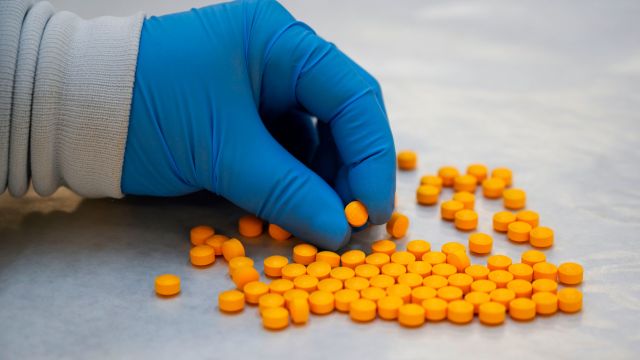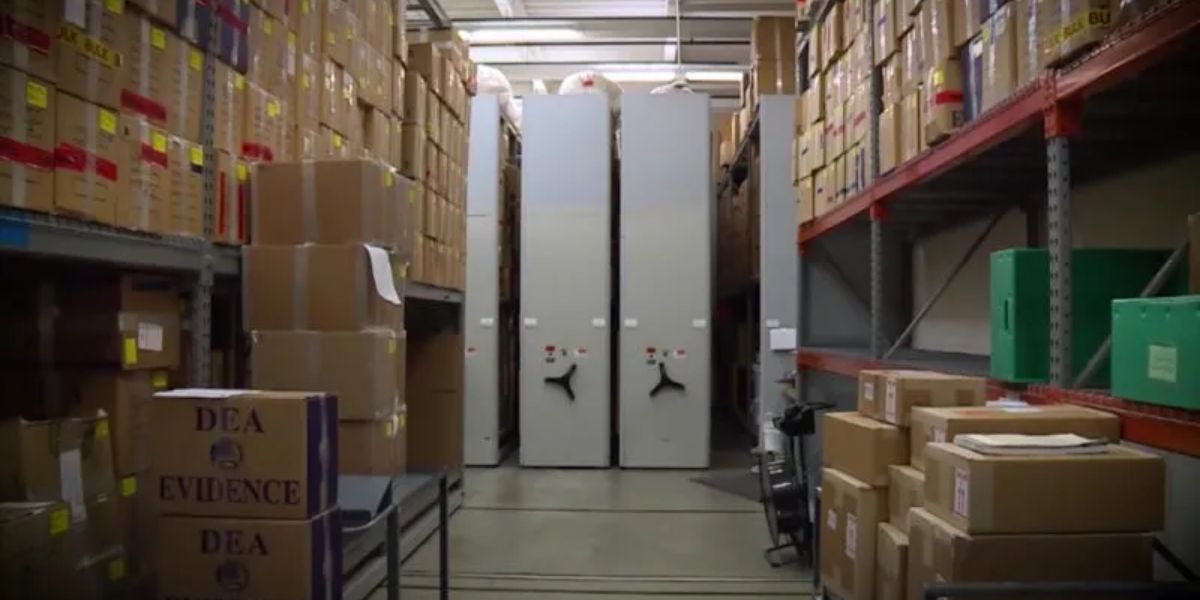MJP —
The Drug Enforcement Administration (DEA) plays an essential role in the fight against fentanyl. When agents seize drugs, the evidence gets sent to a DEA lab for testing. The agency reports more than 70% of illicit drugs seized are laced with fentanyl.
All drugs seized by federal agencies from five states are sent to a DEA lab in Dallas, Texas to be tested.
“Our vault processes it and stores it until it’s time for our forensic chemist to analyze it. And our forensic chemists determine the content of the evidence, as well as sometimes the purity of it,” DEA Laboratory Assistant Director Jamie Vasquez said.
Vasquez said the number one drug that they see is methamphetamine, followed by cocaine, fentanyl and heroin.
“It has changed drastically over the last five years. We’ve gone from submissions of 3% fentanyl to now close to 20% of what we see contains some sort of fentanyl,” Vasquez said.

The DEA acts as the first line of defense against drugs coming across the border.
“The key number is 70%. You have to know that 70% of these pills right now could kill, it could be an overdose,” Special DEA Agent Daniel Comeaux said. “It’s all about money. It’s about the dollar bill. It’s about greed. And that’s who we are going after.”
22 Arrests Made in RPD’s Multi-Agency Crackdown on Drugs and Stolen Vehicles
Comeaux, who is with the DEA’s Houston Division, said drug cartels are mass-producing synthetic fentanyl with deadly precision.
“So, you might have even someone as young as a middle schooler saying, well I heard about the Xanax. So let me take the Xanax one time just to get a high effect. And they take one of these fake pills, and they end up dead. 70% of these pills contain a lethal dose,” Comeaux said.
Last year’s lab results show the DEA seized 521,000 fentanyl tablets.
“Look, we’re aggressively targeting them. We’re doing it in so many different ways now. We’re going on websites. We’re going on social media. We’re going on all of these apps. Wherever they are, we are too now,” Comeaux said.
He urged parents to talk to their kids about the dangers of fentanyl.
“Because it’s not necessarily, say, a drug dealer that will push this pill on it. It could be their best friend. It could be their peer. And if you don’t have those types of conversations with your kids, they might think nothing of it,” Comeaux said.




